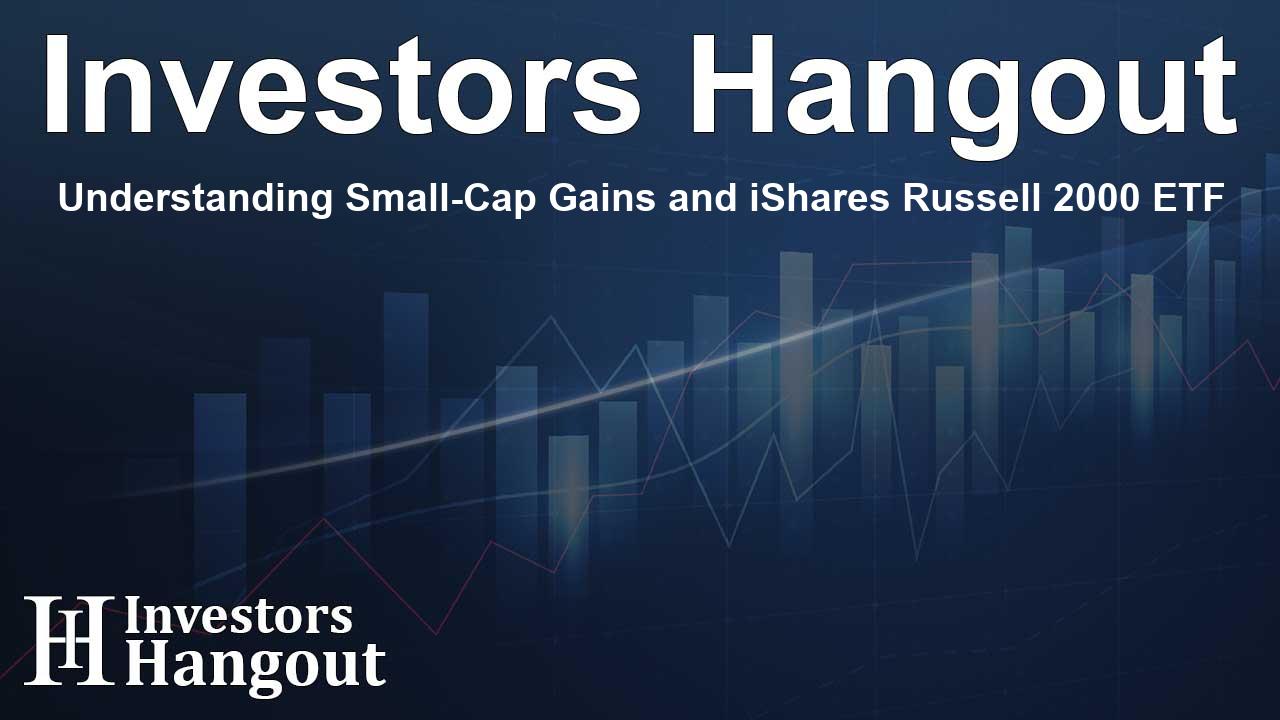Understanding Small-Cap Gains and iShares Russell 2000 ETF

Exploring the Surge of Small-Cap Stocks This November
In November, U.S. small-cap stocks have seen impressive gains, with the iShares Russell 2000 ETF (IWM) rising 8.5%. This performance notably exceeds that of larger counterparts like the SPDR S&P 500 ETF Trust (SPY).
Key Drivers Behind the Performance
The rally of IWM this year can be attributed to several factors, particularly supportive monetary policies, significant political events, and robust economic resilience. Recent actions by the Federal Reserve, including a notable 25-basis-point rate cut in November, have decreased borrowing costs, especially benefiting small-cap firms that heavily depend on credit.
Impact of Lower Interest Rates
Lower interest rates directly enhance profit margins for small-cap companies by reducing borrowing costs. Cheaper credit enables these businesses to invest in various growth areas, including hiring new staff, making capital investments, and engaging in research and development efforts. The attractiveness of small caps increases as investors seek higher returns in response to lower fixed-income yields.
Political Developments Favor Small Caps
Another catalyst for the favorable performance of small-cap stocks is the growing optimism surrounding potential outcomes of upcoming political elections. With expectations of regulatory changes following a possible Republican sweep, investor confidence has surged, prompting additional investments in small-cap firms.
Economic Fundamentals at Play
The backdrop of steady economic fundamentals significantly supports this rally. Key indicators, such as ongoing GDP growth and a solid labor market, bolster consumer confidence and enhance domestic demand—essential factors that influence small-cap stock performance.
IWM's Historical Performance Post-Elections
Reviewing historical performance data reveals patterns for IWM in the months following elections. Insights suggest small caps often mirror broader market sentiments driven by new policies, economic outlooks, and seasonal variations.
Notable Historical Trends
- November 2020: After the election of Joe Biden, IWM soared by 18.24%, fueled by optimism over COVID-19 vaccines and the potential for new fiscal stimulus.
- November 2016: Following Donald Trump’s victory, IWM rose 6.5% on expectations of pro-business policies like tax reductions and deregulation.
- November 2012: Post-Obama’s re-election, IWM experienced modest growth of 1.5%, reflecting a stable economic outlook during his second term.
- November 2008: After Barack Obama’s first election, small caps struggled, with IWM declining about 5% amidst financial crisis challenges.
As small-cap stocks continue to gain traction, it's essential for investors to consider both macroeconomic factors and historical performance trends when evaluating market opportunities.
Frequently Asked Questions
What is the iShares Russell 2000 ETF?
The iShares Russell 2000 ETF (IWM) tracks the performance of small-cap stocks in the U.S., representing the lower tier of the Russell 3000 index.
Why are small-cap stocks performing well currently?
Small-cap stocks are benefiting from lower interest rates, optimism from political developments, and positive economic indicators contributing to their recent performance.
How do monetary policies affect small-cap companies?
Supportive monetary policies, especially lower interest rates, reduce borrowing costs, allowing small-cap companies to finance expansion and improve profit margins.
What historical trends are observed in small-cap performance post-elections?
Small-cap performance post-elections often reflects increased investor optimism and market sentiments based on anticipated policy changes and economic forecasts.
What are the potential risks associated with investing in small-cap stocks?
Small-cap stocks might exhibit higher volatility compared to large-cap counterparts, influenced by economic conditions and market sentiment swings, posing risks for investors.
About Investors Hangout
Investors Hangout is a leading online stock forum for financial discussion and learning, offering a wide range of free tools and resources. It draws in traders of all levels, who exchange market knowledge, investigate trading tactics, and keep an eye on industry developments in real time. Featuring financial articles, stock message boards, quotes, charts, company profiles, and live news updates. Through cooperative learning and a wealth of informational resources, it helps users from novices creating their first portfolios to experts honing their techniques. Join Investors Hangout today: https://investorshangout.com/
Disclaimer: The content of this article is solely for general informational purposes only; it does not represent legal, financial, or investment advice. Investors Hangout does not offer financial advice; the author is not a licensed financial advisor. Consult a qualified advisor before making any financial or investment decisions based on this article. The author's interpretation of publicly available data shapes the opinions presented here; as a result, they should not be taken as advice to purchase, sell, or hold any securities mentioned or any other investments. The author does not guarantee the accuracy, completeness, or timeliness of any material, providing it "as is." Information and market conditions may change; past performance is not indicative of future outcomes. If any of the material offered here is inaccurate, please contact us for corrections.